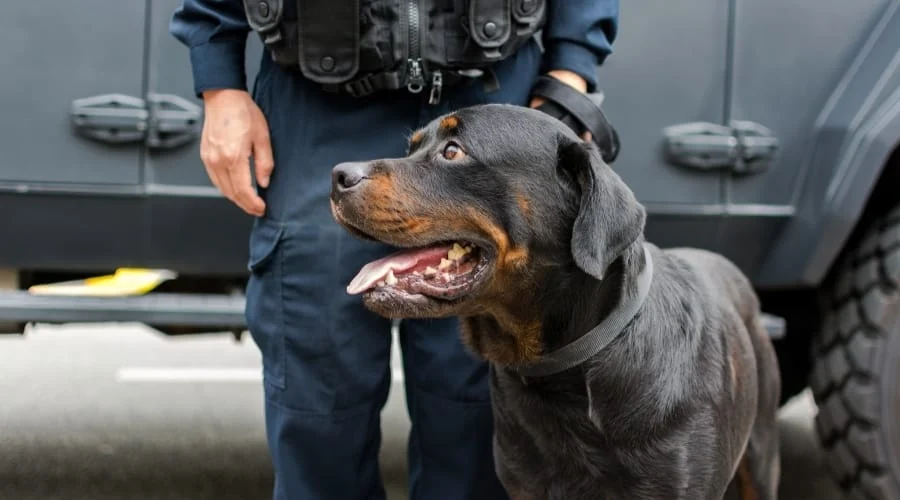Understanding Rottweilers Protective Instincts
The Rottweiler’s History
To truly understand a Rottweiler’s protective instincts, it’s helpful to take a look at the breed’s origins. Rottweilers were originally bred in Germany to herd cattle and guard livestock. Their strong, muscular build and assertive nature made them ideal working dogs for this role. In addition to protecting cattle, they were often tasked with guarding their owner’s property, including homes and farms.
Because of their history as guardians, Rottweilers developed an innate sense of loyalty and vigilance toward their families and homes. This desire to protect those they care about has remained a key characteristic of the breed, even as they transitioned to roles as companion dogs. However, their protective instincts need to be managed properly to ensure they are both safe and well-behaved around strangers and other animals.
Rottweilers and Family Protection
Rottweilers are deeply loyal to their families, and this loyalty is one of the primary driving forces behind their protective behavior.
They tend to form close relationships with their family members and often look to their owners as the “alpha” of the pack. This bond makes them incredibly protective, especially of children or vulnerable family members. If a Rottweiler perceives that its family is in danger, it will often take action to protect them, whether by barking, blocking access to certain areas, or even physically intervening if necessary.
Because of this protective nature, Rottweilers can be excellent family dogs in the right environment. They are often described as gentle giants with their loved ones but assertive and confident when it comes to guarding their homes. Early training and socialization are crucial to ensure that they understand when and how to express their protective instincts appropriately.
The Protective Instincts
Rottweilers’ protective instincts can manifest in several ways, and these behaviors can vary depending on the dog’s temperament, training, and socialization. Some common signs of a Rottweiler’s protective behavior include:
Alertness to Strangers
Rottweilers are known for their heightened awareness of their surroundings. They can be suspicious of strangers, especially if they sense something unfamiliar or unusual in their environment. When someone new approaches, a Rottweiler may become alert, barking, or standing guard. However, they typically won’t display aggression unless they perceive a direct threat.
Guarding Property
Rottweilers tend to be territorial and may exhibit guarding behaviors around their home or property. They are naturally inclined to protect their “territory” from perceived intruders, including unfamiliar people or animals. This can include behaviors like standing in front of the door, growling, or becoming vocal when someone approaches the home.
Protection of Family Members
One of the most notable aspects of a Rottweiler’s protective instincts is their tendency to safeguard family members. This can include watching over children, positioning themselves between their owners and perceived threats, or even “herding” family members to keep them together in certain situations. This protective behavior is often most apparent when the Rottweiler feels that its family’s safety is in jeopardy.
Intimidating Presence
Rottweilers have a large, muscular build and an intimidating presence, which often works in their favor when it comes to protecting their home. Even without engaging in aggressive behavior, their mere size and posture can be enough to deter potential intruders. This “intimidation” factor is often enough to make burglars or threats think twice about approaching.
Signs of Over-Protectiveness
While Rottweilers are naturally protective, excessive guarding or territorial behavior can be problematic. Signs of over-protectiveness include:
- Aggression toward strangers or other animals
- Constant barking or growling when unfamiliar people or animals approach
- Overly territorial behavior, such as aggression toward guests or visitors
- Fear-based behavior, including shying away from certain situations or people
Conclusion
Rottweilers are inherently protective dogs, and this trait is one of the reasons they make excellent family guardians. Their loyalty, vigilance, and sense of duty toward their family members and home are qualities that many owners value.









